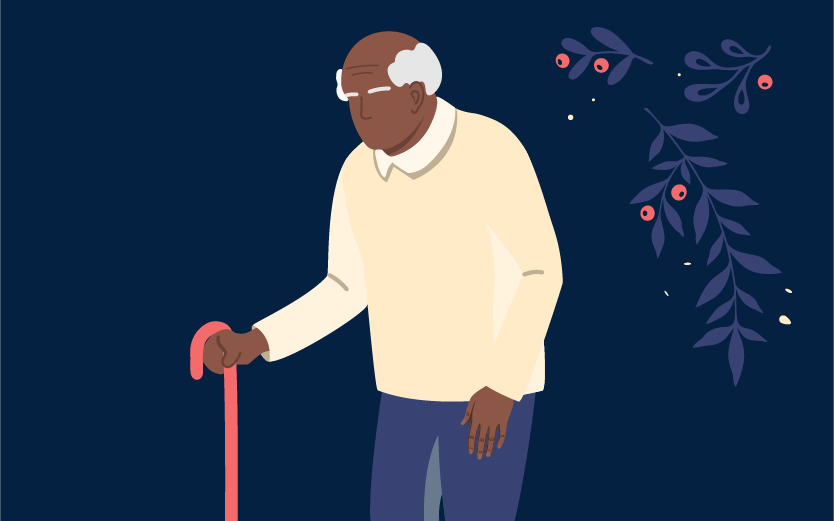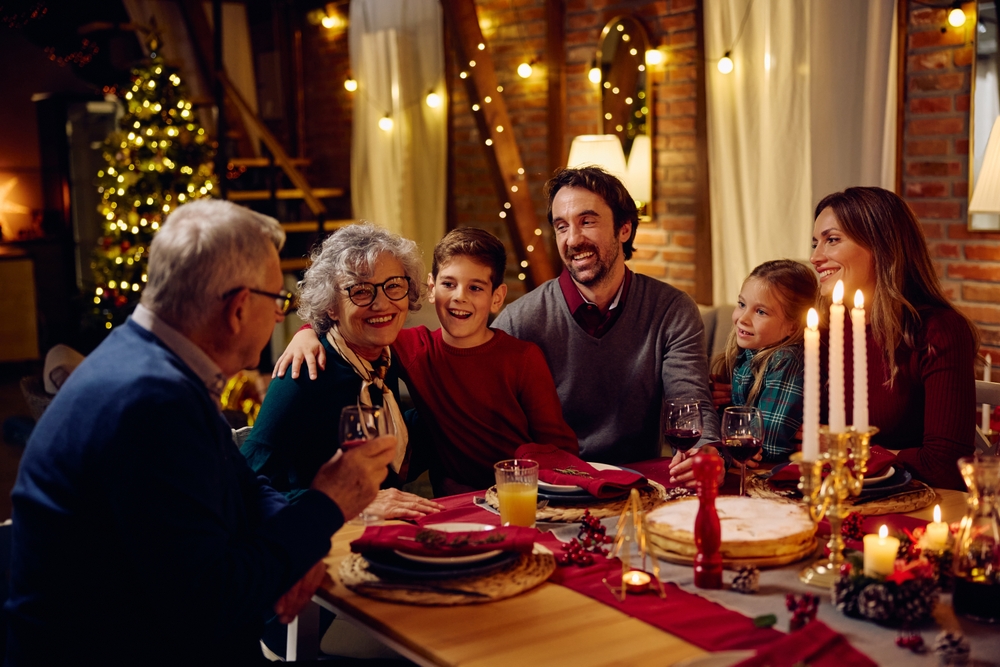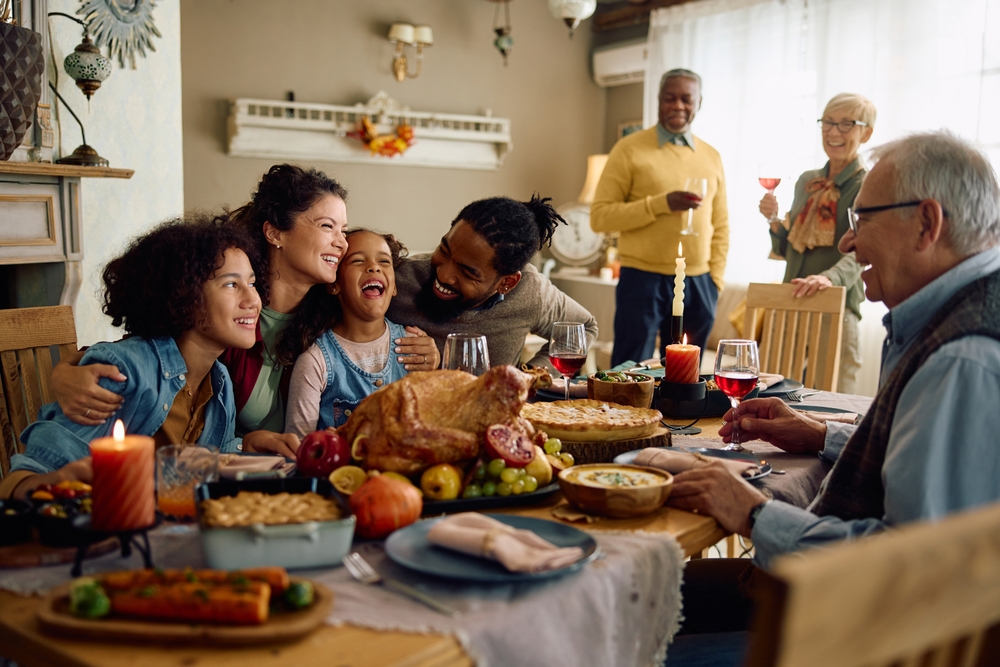Unwrapping the Truth: Is your Senior Loved One in Need of Care?
Category:

The holiday season is a magical time filled with joy, warmth, and family gatherings. Often, we visit our older relatives that we don’t see throughout the year. This provides an opportunity to observe our aging loved ones in their homes and social settings, and if we pay attention, we may notice subtle changes in appearance and behavior. While some changes may be harmless, others can be early warning signs that your loved one might benefit from in-home care.
Changes in Holiday Spirit
While everyone has ups and downs, the holiday season is traditionally synonymous with joy and celebration. However, a noticeable decline in your loved one’s holiday spirit might signal underlying issues. Whether it’s not decorating their home, avoiding holiday gatherings, or showing a lack of interest in festive activities, these can be subtle indicators of underlying issues. If they seem disinterested in festive activities they once enjoyed or opt out of family gatherings, it could indicate feelings of loneliness, emotional distress, depression, or early signs of cognitive challenges. Staying attuned to such shifts is essential as they can be early indicators of recognizing senior stress during the holidays.
Unfinished or Incomplete Holiday Tasks
Holiday preparations, from baking to decorating, often come with a flurry of tasks. However, if Grandma always baked her famous pumpkin pie but has yet to make it this year, or if Grandpa’s handcrafted ornaments are missing from the tree, it might be more than forgetfulness. Struggling with once-easy tasks could indicate physical discomfort, decreasing energy levels, or potential cognitive challenges.
Forgetfulness or Confusion with Gifts
Forgetting a name or misplacing an item occasionally is natural. However, if your loved one forgets whom they bought a gift for, gives inappropriate gifts, or seems confused by the act of gift-giving, it could indicate cognitive challenges. Approach the topic gently, asking them about the story or thought behind the gift. This can offer insight into their thought process and memory.
Changes in Personal Appearance
While everyone wants to look their best for the holidays, pay attention to any drastic or uncharacteristic changes in your loved one’s appearance. This can include wearing the same clothes repeatedly, unkempt hair, or neglecting hygiene. Personal grooming plays a significant role in one’s self-esteem and overall well-being. Such changes can stem from physical limitations or memory challenges, emphasizing the need to ensure they remain safe and well cared for in the future.
Avoidance of Social Interactions
Humans are inherently social, and the holidays amplify our need for connection. If a previously outgoing loved one begins to withdraw from social situations or avoids gatherings, it might be a sign of deeper issues. Possible reasons include difficulty in communication, like hearing or cognitive challenges, or feelings of inadequacy, isolation, and depression.
Neglecting Home Maintenance
The condition of one’s living environment reflects their physical and mental health. If daily tasks are left undone, or the space is disorganized, it could signify personal challenges. Things like spoiled food in the fridge or untouched medication dispensers mean your loved one may not be capable of managing a household alone. These issues may result from physical limitations or discomfort, decreasing energy levels, cognitive challenges, or a combination.
Addressing Concerns: I’ve Spotted Warning Signs, What Do I Do Next?
Recognizing changes in our aging loved ones can be an emotional experience. It’s a balance of concern, love, and the innate desire to support them. It’s only natural to feel a rush of emotions: worry about their well-being, a longing for the past, and uncertainty about the future. In such moments, it’s essential to remember that you’re not alone and there are proactive steps you can take. Here’s a compassionate and informed approach to navigate this journey:
- Start a Dialogue. Begin with an open-hearted conversation. Share your feelings and concerns and listen to them. This ensures they feel heard and not judged.
- Seek Professional Guidance. Connect with healthcare professionals, whether a primary care physician, geriatric specialist, or counselor. Their expertise can offer clarity and advice.
- Explore Home Care Options. Companies like Griswold offer non-medical home care solutions tailored to your loved one’s unique needs, so they can live safely in the home they love. Companionship, homemaking, and personal care are a few of the ways Griswold offers support.
- Respect Their Autonomy. While ensuring their safety is essential, remember to respect their choices and independence.
- Stay Informed. Equip yourself with knowledge about the challenges seniors often face. A well-informed approach fosters understanding and empathy.
Prioritizing Our Seniors This Holiday Season
The holidays remind us of the importance of family and connection. As we gather and celebrate, it’s crucial to pay close attention to our aging loved ones. Sometimes, amidst the festivities, subtle changes in their behavior or demeanor might emerge. These changes can be indicators of deeper needs or concerns. By being observant and responsive, we can ensure they feel supported and valued. After all, the true spirit of the season is about making sure everyone, regardless of age, feels included, loved, and cared for.
Subscribe
Date: 2023-11-30
Category:


